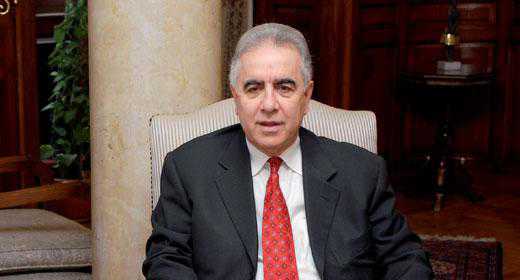Azerbaijan’s leaders may not be aware that some of their incompetent underlings are causing great harm to the interests and reputation of their own country. Pres. Aliyev should take a short break from issuing daily threats to Armenians and pay a little more attention to “enemies” within his own government.
To begin with, Azeri officials cannot count! Azerbaijan’s Foreign Ministry recently issued a “Black List,” disclosing the names of 335 individuals from 41 countries who had visited Karabagh (Artsakh) since 2005, “without Baku’s permission.” The list of persona non grata banned from visiting Azerbaijan includes: parliament members, businessmen, journalists, entertainers, and other celebrities. They are all accused of violating Azerbaijan’s borders and disrespecting “the national sovereignty and territorial unity” of the country. Azerbaijan’s Foreign Ministry website sheepishly acknowledges that “Nagorno-Karabagh” is “temporarily out of the control of the Republic of Azerbaijan.”
Here is the number of visitors from each of the 41 countries who traveled to Artsakh “illegally,” according to Azerbaijan’s Foreign Ministry website:
Argentina (6), Australia (12), Austria (8), Belarus (1), Belgium (6), Bulgaria (5), Canada (6), Cyprus (3), Czech Republic (2), Denmark (2), Estonia (1), France (22), Georgia (11), Germany (22), Greece (2), Hungary (1), Iran (3), Ireland (2), Israel (1), Italy (24), Japan (1), Jordan (1), Latvia (2), Lebanon (1), Lithuania (6), Moldova (3), Netherlands (4), Poland (6), Russia (91), Romania (3), Serbia (2), Singapore (1), Slovakia (2) Spain (1) Sweden (1), Switzerland (7), Turkey (1), Ukraine (8), UK (13), Uruguay (5), and U.S. (36).
The Azeri count of 335 visitors to Artsakh since 2005 is way off! Over 16,000 tourists from 86 countries visited Artsakh in 2012 alone. The Azeri bureaucrats who prepared the “Black List” not only can’t count, but also cannot find publicly available information. While the name of every single tourist entering Artsakh is not known, Azerbaijan’s intelligence agents must be sleeping on the job. Surprisingly, none of Armenia’s leaders appears on Azerbaijan’s “Black List,” even though they make no secret of their periodic trips to Artsakh. Could it be that Azeri officials consider Artsakh to be part of Armenia, and that’s why they do not blacklist Armenian citizens who go there?
Faulty mathematics and shoddy intelligence create additional problems for Azerbaijan. In the list of 335 names, there are people who have never been to Artsakh, while others, like Jonas Hollander from Germany, have visited Artsakh and yet, their names are left off the “Black List.” Hollander posted the following sarcastic comment on his facebook page, displaying a photocopy of his entry visa for “The Nagorno-Karabakh Republic”: “Dear Azerbaijan, recently you have published a list of people who are not allowed to enter your country. I am fully offended and frustrated that my name was not included in your list. Please find attached evidence of my stay in Karabagh and correct the mistake as soon as possible. [Signed] Jonas Hollander, feeling sad and unimportant.”
To ridicule the ban on future travels to Azerbaijan, Armenians have set up a facebook page titled, “I have been to Artsakh without permission.”
Here are some critical responses from prominent individuals who have been unfairly blacklisted:
— Marcelo Catelmi, Chief Editor of International Policy at the prominent Argentine newspaper Clarin: “Publishing a blacklist is a despicable and barbaric act. It is a discriminatory method, historically used by dictators and tyrants who intend to punish divergent opinions in a brutal manner.”
— E. Wayne Merry, Senior Fellow for Europe and Eurasia at the American Foreign Policy Council, Washington, D.C.: “Azerbaijan harms only itself with its ‘black list’ of persons who have visited Karabagh. An intelligent policy for Baku would be to invite to Azerbaijan, immediately, every person from a third country who visits Karabagh.”
After it was revealed that the “Black List” had inadvertently left out the names of tens of thousands of Artsakh visitors over the years, Elman Abdullayev, Chief of the Press Service of Azerbaijan’s Foreign Ministry, embarrassingly announced that the list will be updated and expanded. Hopefully, he does not forget to add my name to the “Black List,” especially since I wrote a column describing my memorable visit to Artsakh.
Armenian officials should help the Azeris by making public the names of everyone who had the good fortune of visiting Artsakh in the past 20 years, so that they would all be banned from entering Azerbaijan, leaving that country with fewer visitors, and isolating it from the rest of the civilized world!


